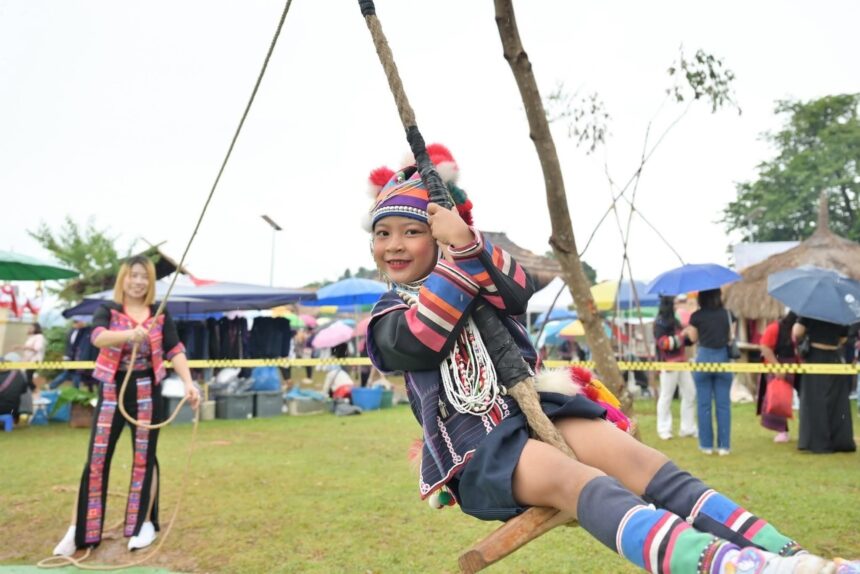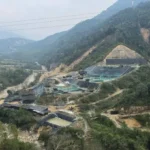CHIANG RAI – The Akha Hilltribe people are getting set to welcome visitors with a memorable celebration as Akha communities prepare to host their traditional swing festival on Doi Mae Salong.
This annual event, which begins tomorrow, honours the spirits believed to bring prosperity and a good harvest after the planting season. Alongside the Akha, other groups like Iu Mien, Lahu, Lisu, and Shan are joining in to showcase their rich traditions.
Each year after the rice and crop harvest, usually between August and September, Akha people across Thailand, especially in Chiang Rai, celebrate this festival. They gather to thank the spirits for abundance and healthy crops.
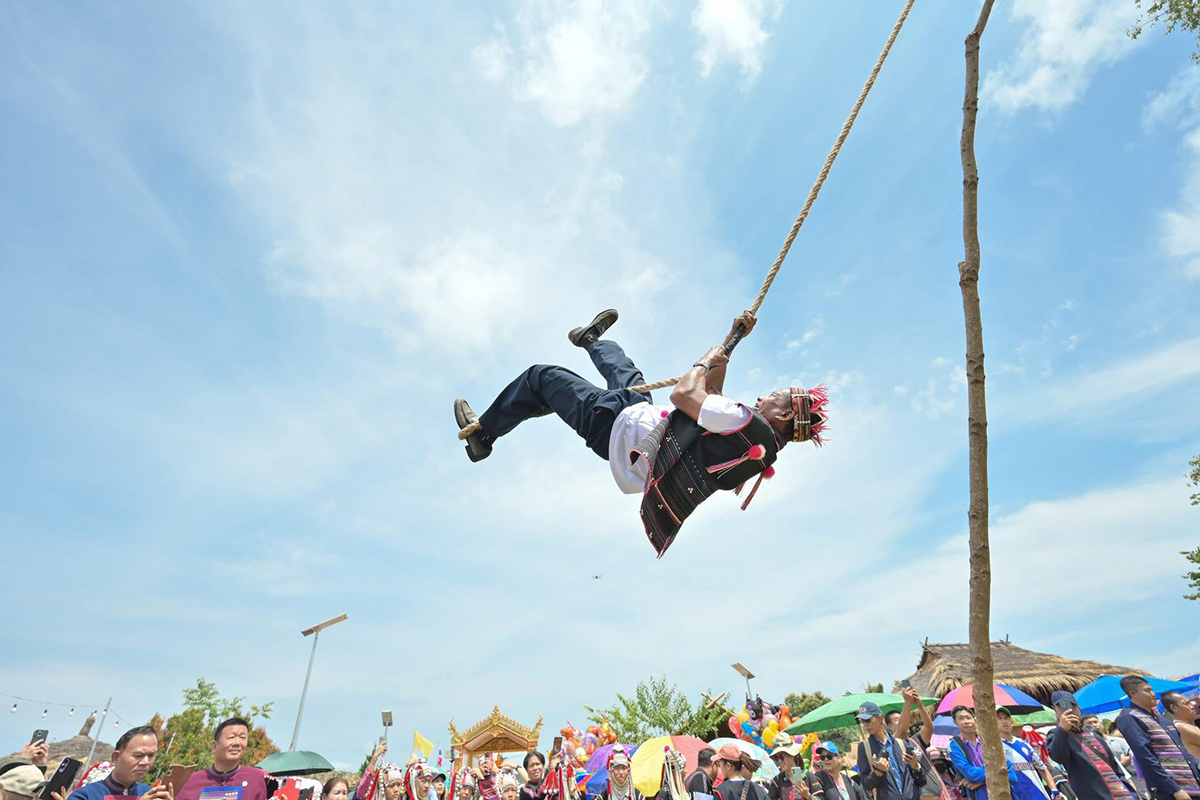
In 2025, the Mae Salong Nai Subdistrict Administrative Organization (SAO), together with local agencies and ethnic communities, will hold the “Akha Swing Festival” at Phra Siam Thewathirat Square, Village 24, Mae Salong Nai, from 6 to 7 September.
The main activity features the Akha bamboo swing, or “Yae Khu Ah Pe.” Four tall wooden poles are tied together with a strong rope for people to swing while taking in the mountain views.
Visitors can watch or join in with locals from over 40 groups, including Akha, Iu Mien, Lahu, Lisu, and Shan performers. Highlights include bamboo-pole dancing (called “Bo Chong Tu” in Akha) and spinning top games (“Kala La Cher”), all taking place in the cool mountain air of the rainy season.
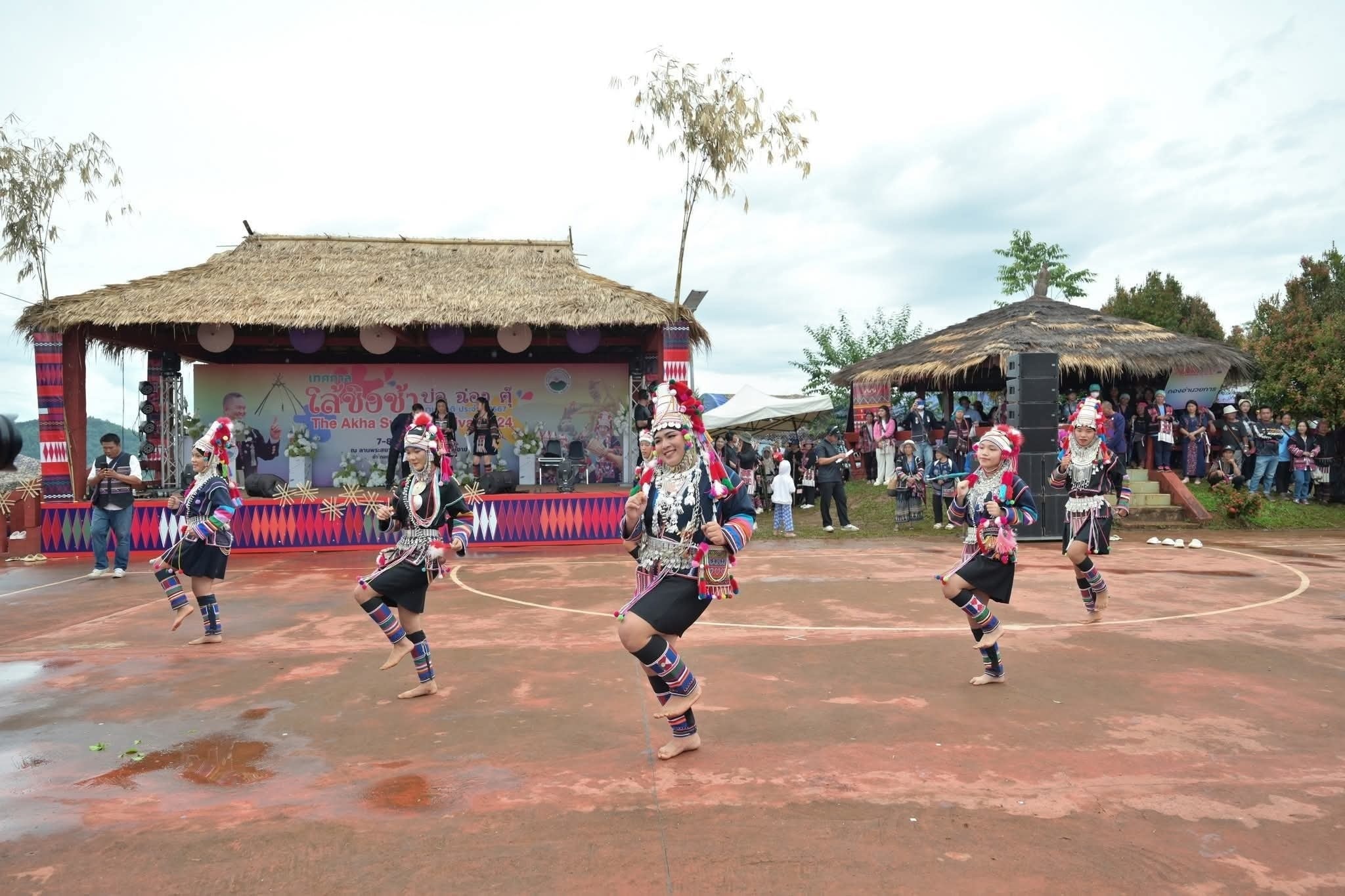
Mr. Piyadech Chengpitakkul, chief of Mae Salong Nai SAO, said this festival is held every year, combining cultural shows and fun activities. There is also a mountain market where ethnic communities sell local crafts, souvenirs, and agricultural products for visitors to browse and buy.
This special tradition takes place just once a year, high in the hills, making it well worth the trip. Visitors come away with great memories and smiles. While attending the festival, guests can also visit nearby attractions like tea and coffee plantations, learn about tribal ways of life, and experience local arts and culture.
The Akha and Hilltribe Communities of Chiang Rai
The Akha are one of Chiang Rai’s well-known hill tribes, bringing colourful traditions to northern Thailand. They originally came from southern China and travelled through Myanmar and Laos before settling in the highlands of Thailand centuries ago.
Akha women are recognized for their bright clothing and detailed headdresses decorated with silver coins and beads. They proudly keep to old beliefs centred on ancestors and spirits, following customs passed down through generations.
Their Tibeto-Burman language carries traces of their journey, and they pass on knowledge through oral stories.
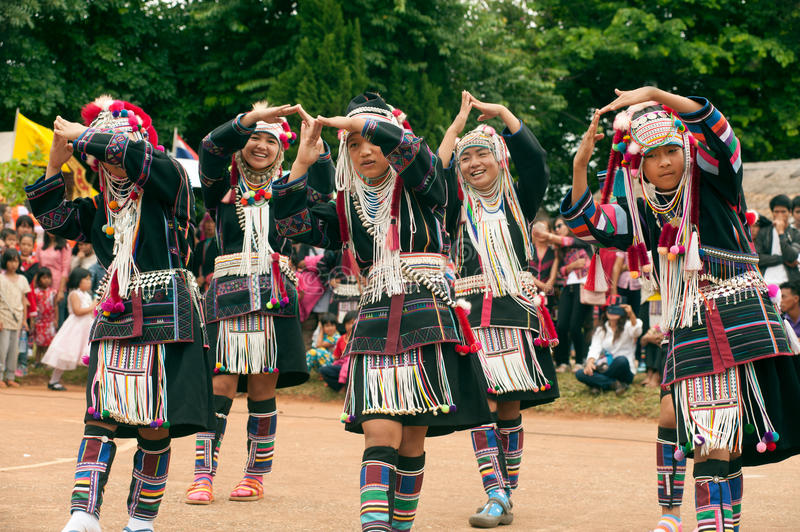
Akha villages usually sit on mountain slopes, with homes built on stilts. Families grow rice, raise animals, and rely on the land. Their spiritual life involves ceremonies to honour ancestors and nature, with events like the Akha Swing Festival marking important times of the year.
Many Akha today try to balance traditional ways with modern life, though issues such as land rights and joining the wider economy create challenges.
Chiang Rai is also home to other groups like the Karen, Hmong, Lahu, Lisu, and Yao. Each group keeps its own language and customs. The Karen, the largest group, are skilled at weaving and have become well-known for supporting elephant care projects.
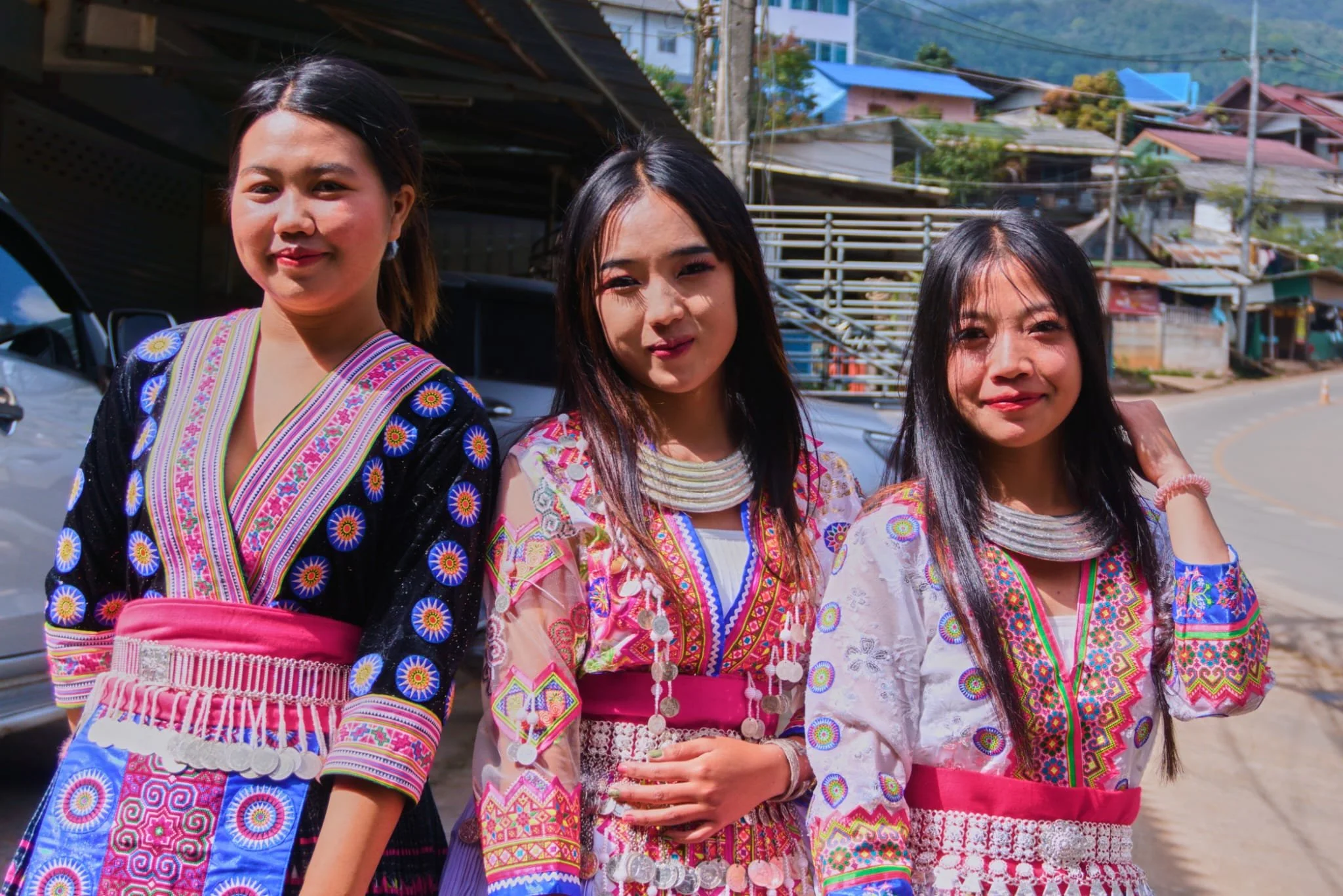
The Hmong have a strong reputation for embroidery and silversmith work, with their lively New Year festival showing their pride. The Lahu practise hunting and shifting farms, while the Lisu are famous for bright clothes and lively music.
The Yao bring in Taoist beliefs and can read Chinese script, plus they produce fine embroidery.
Many hilltribe people face limited access to schools, healthcare, and job choices. Tourism and changes in society put extra pressure on their traditions. Even so, many communities find ways to adapt. Local tourism projects and handicraft groups help support incomes while keeping age-old skills alive.
The hill tribes of Chiang Rai, including the Akha, play a big part in Thailand’s cultural mix. Their traditions offer a look into a way of life that remains strong even as the world changes quickly.




